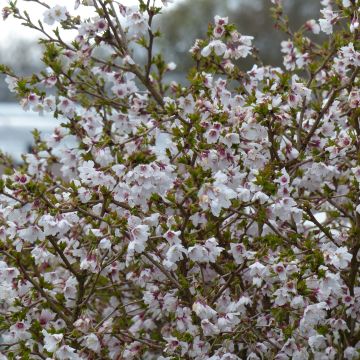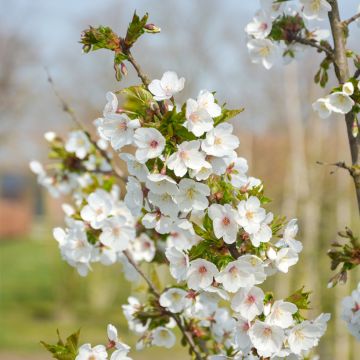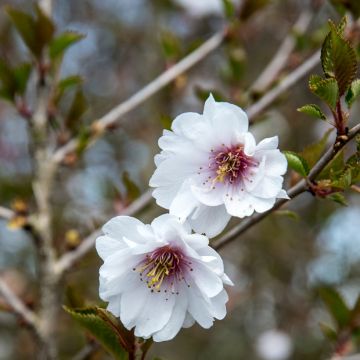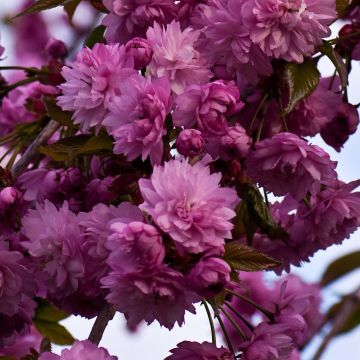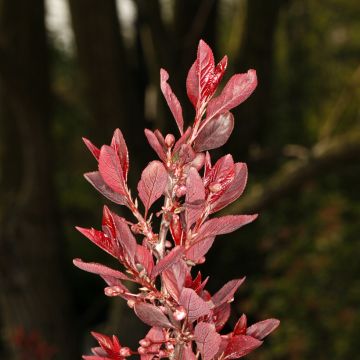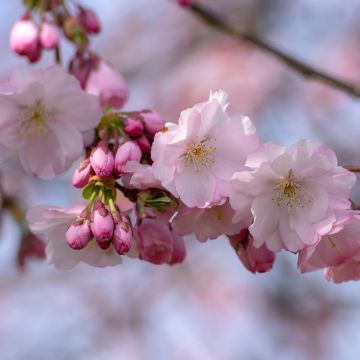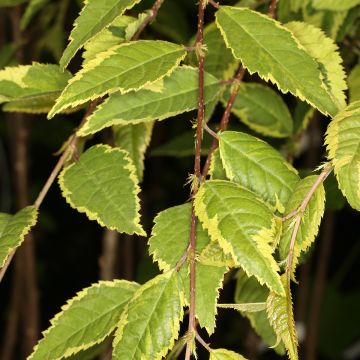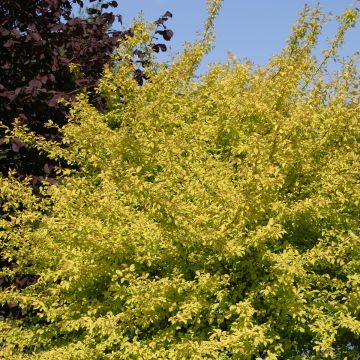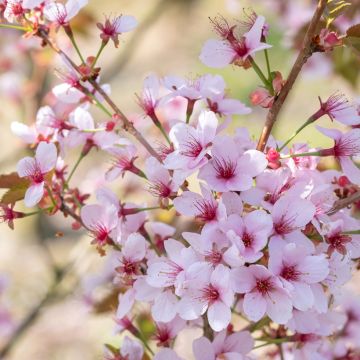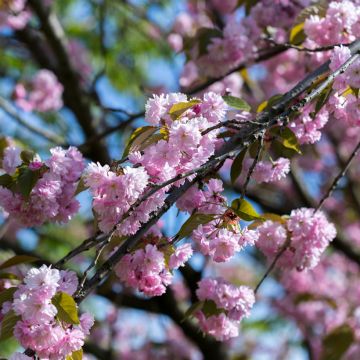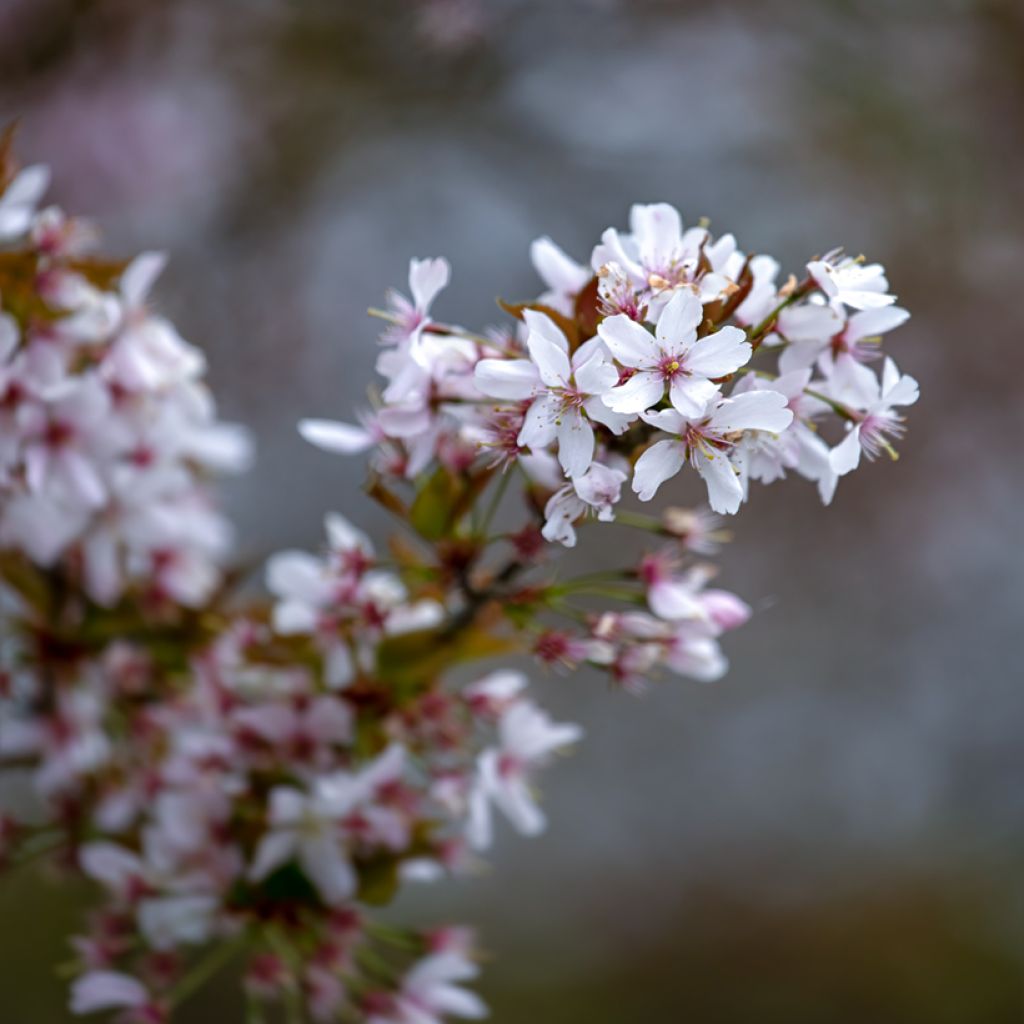

Prunus Pandora - Cherry
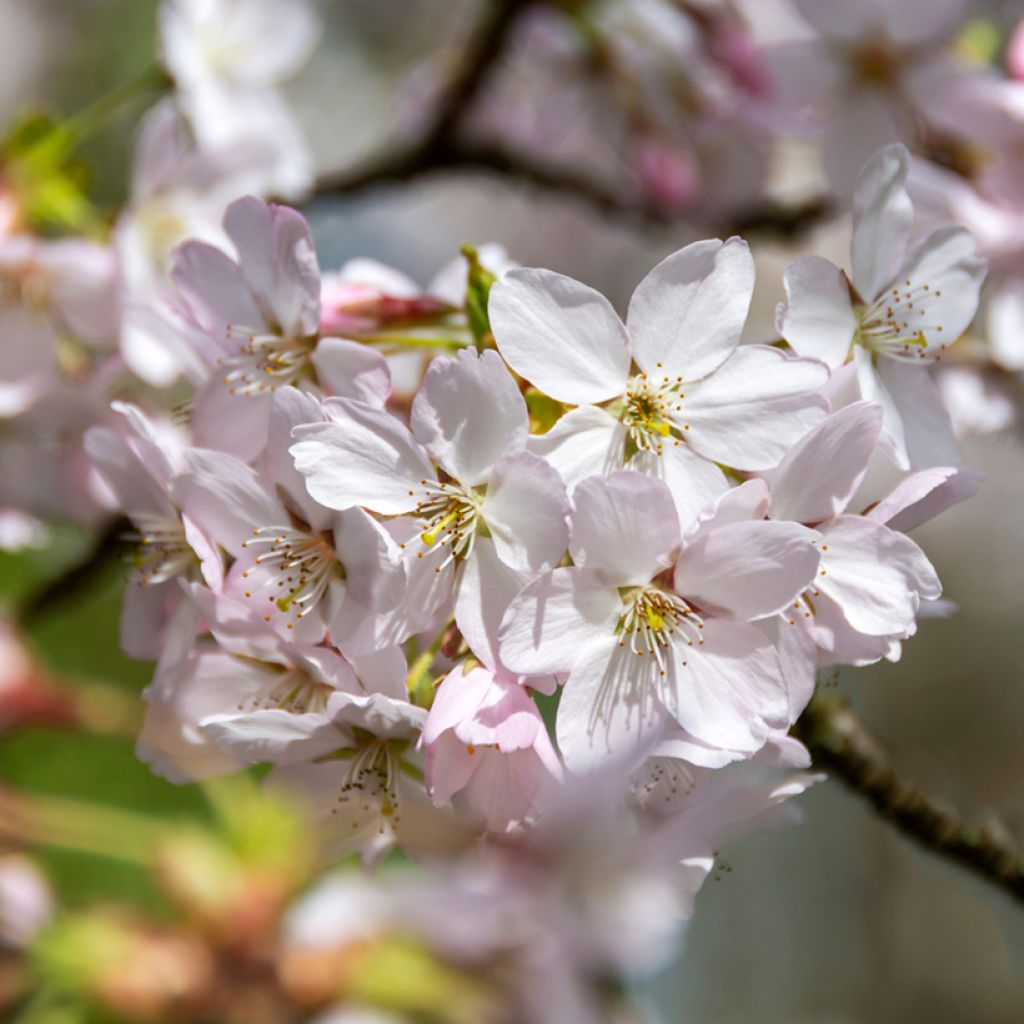

Prunus Pandora - Cherry
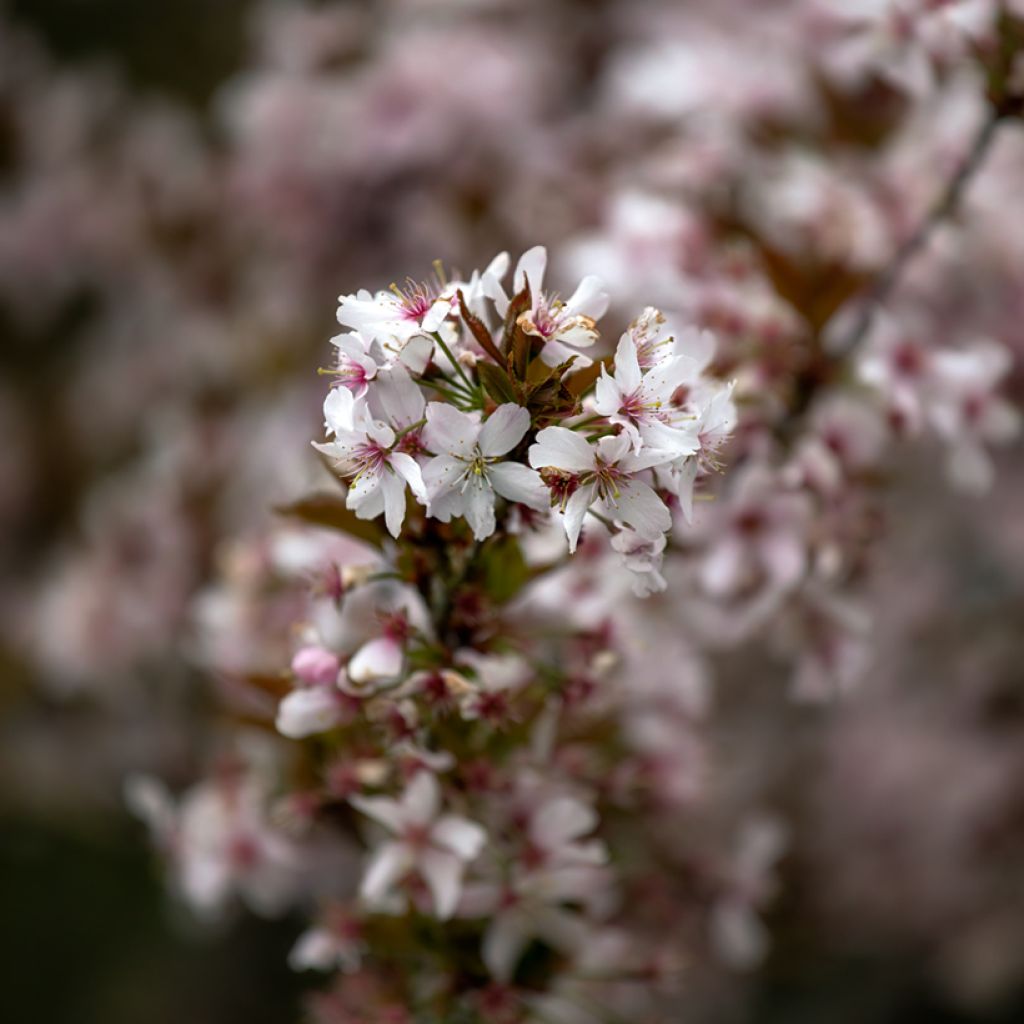

Prunus Pandora - Cherry
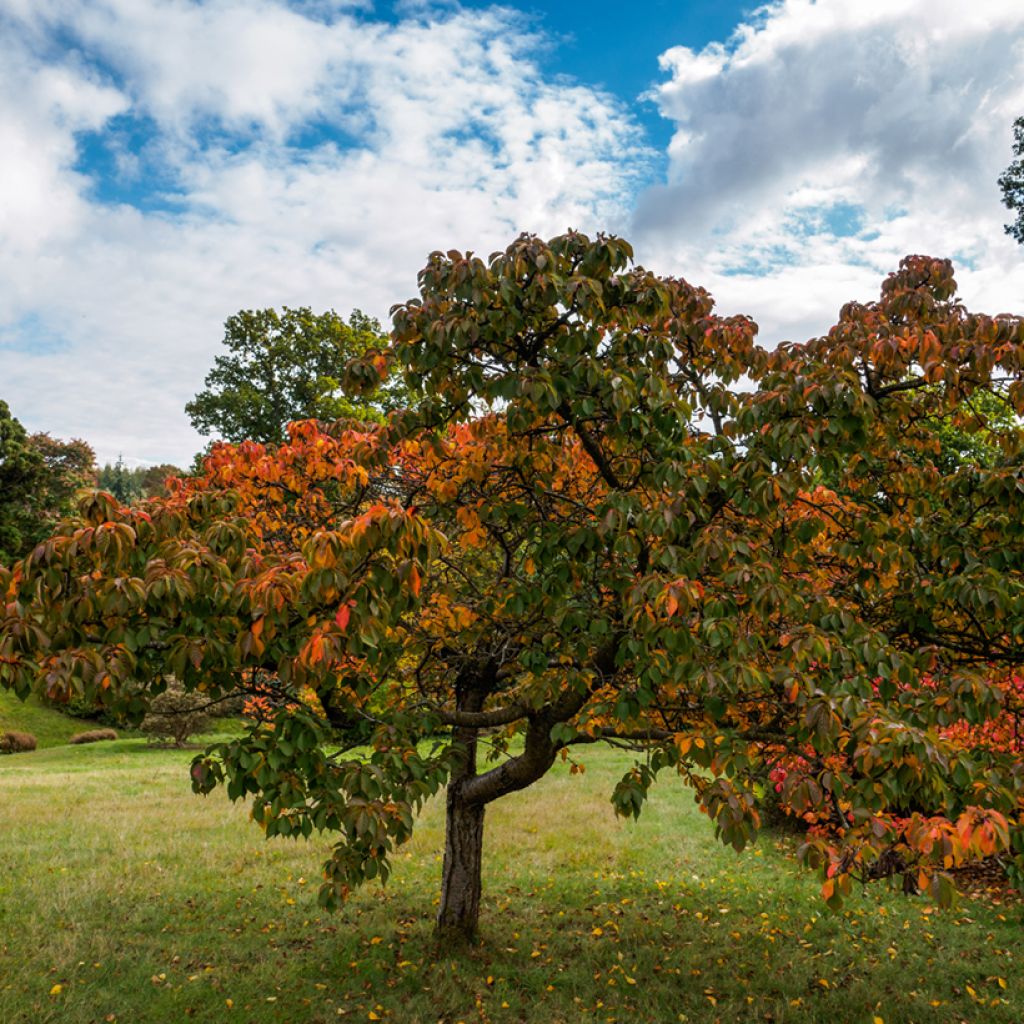

Prunus Pandora - Cherry
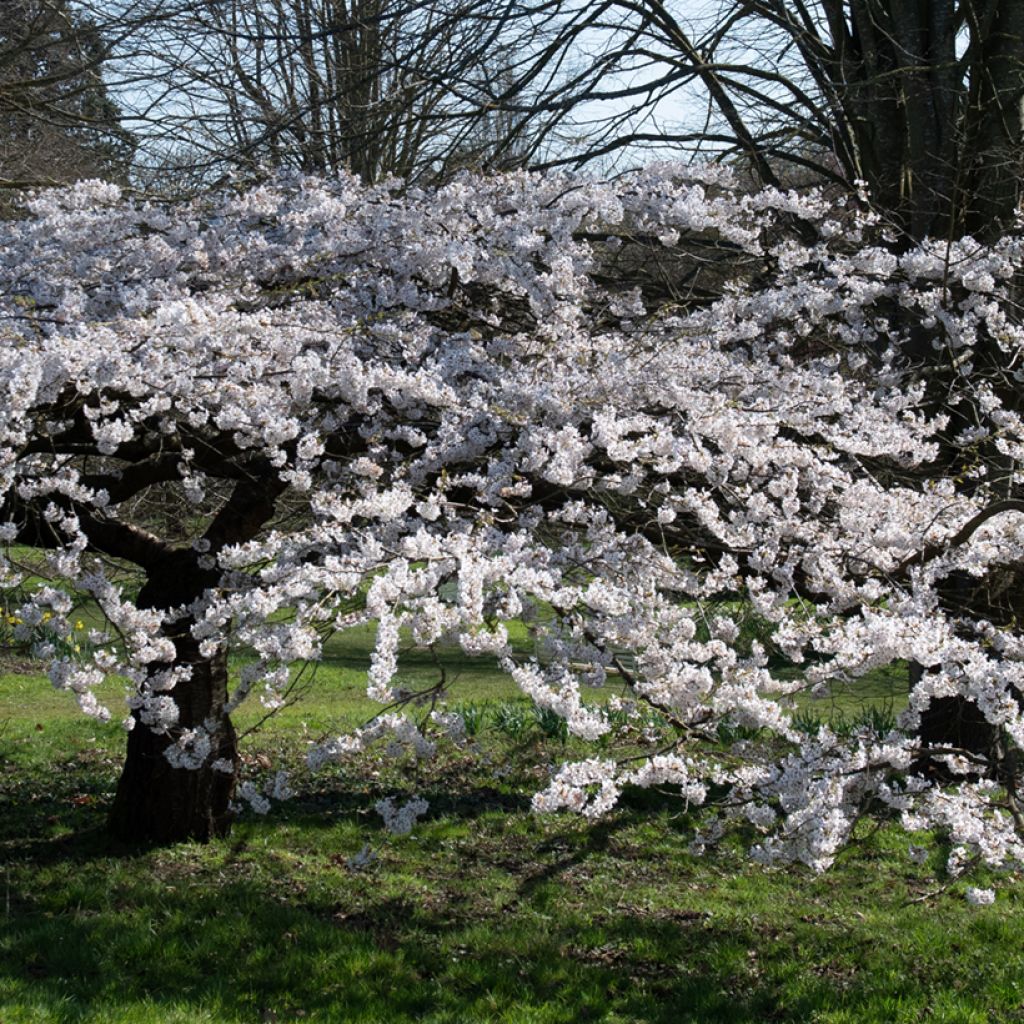

Prunus Pandora - Cherry
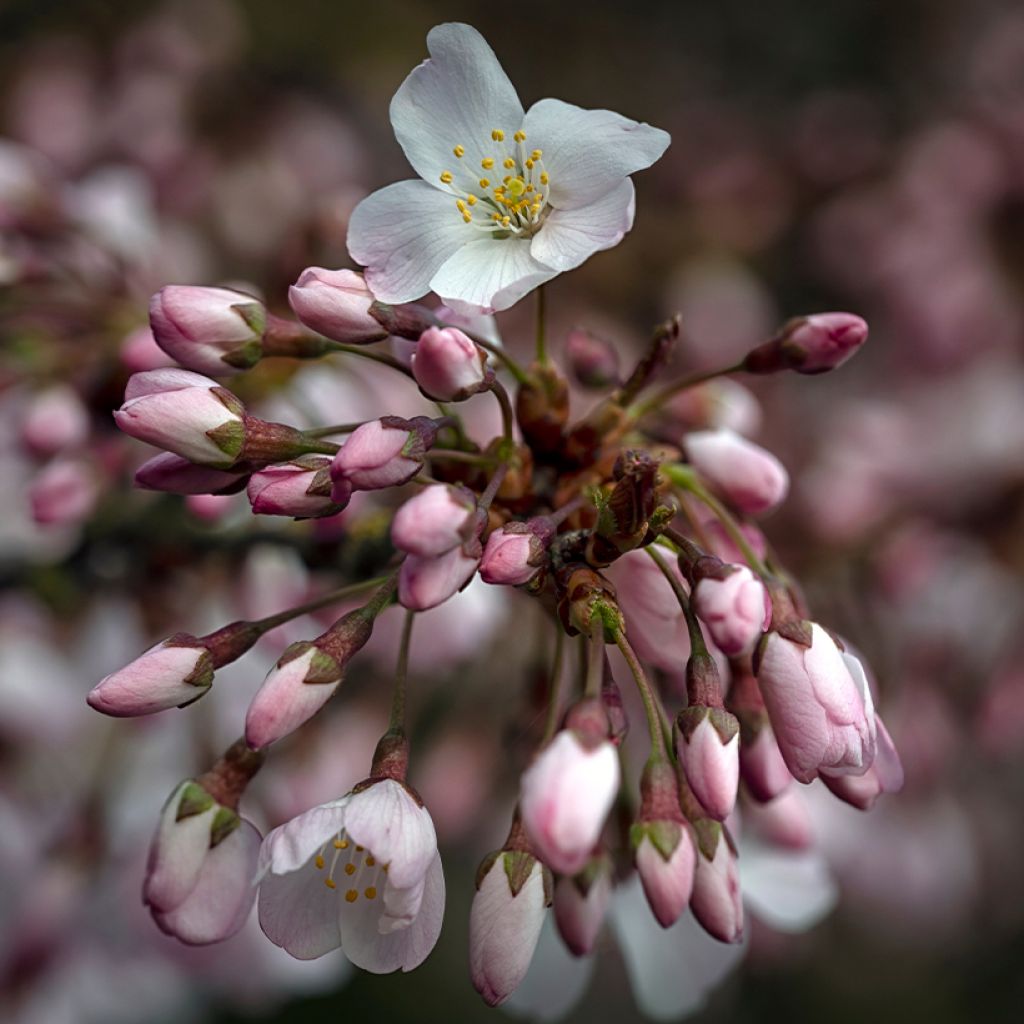

Prunus Pandora - Cherry
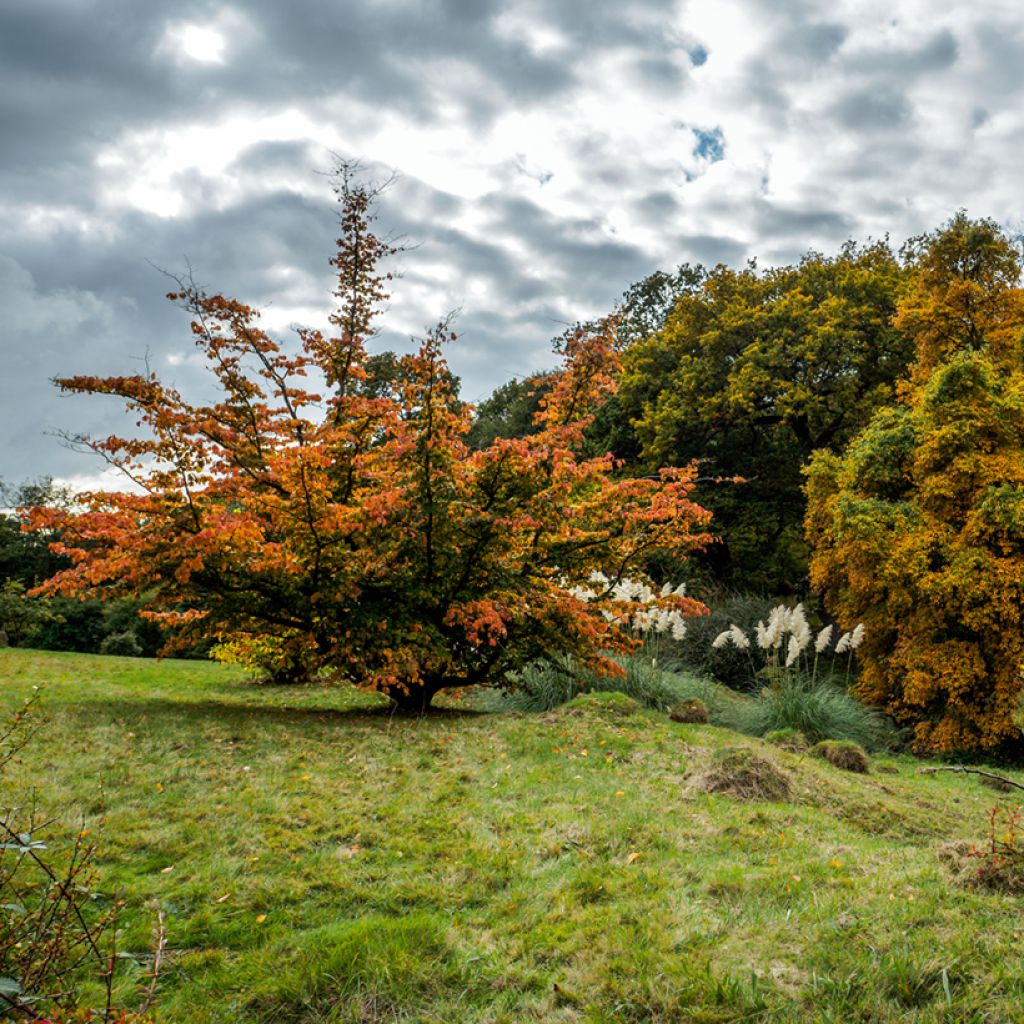

Prunus Pandora - Cherry
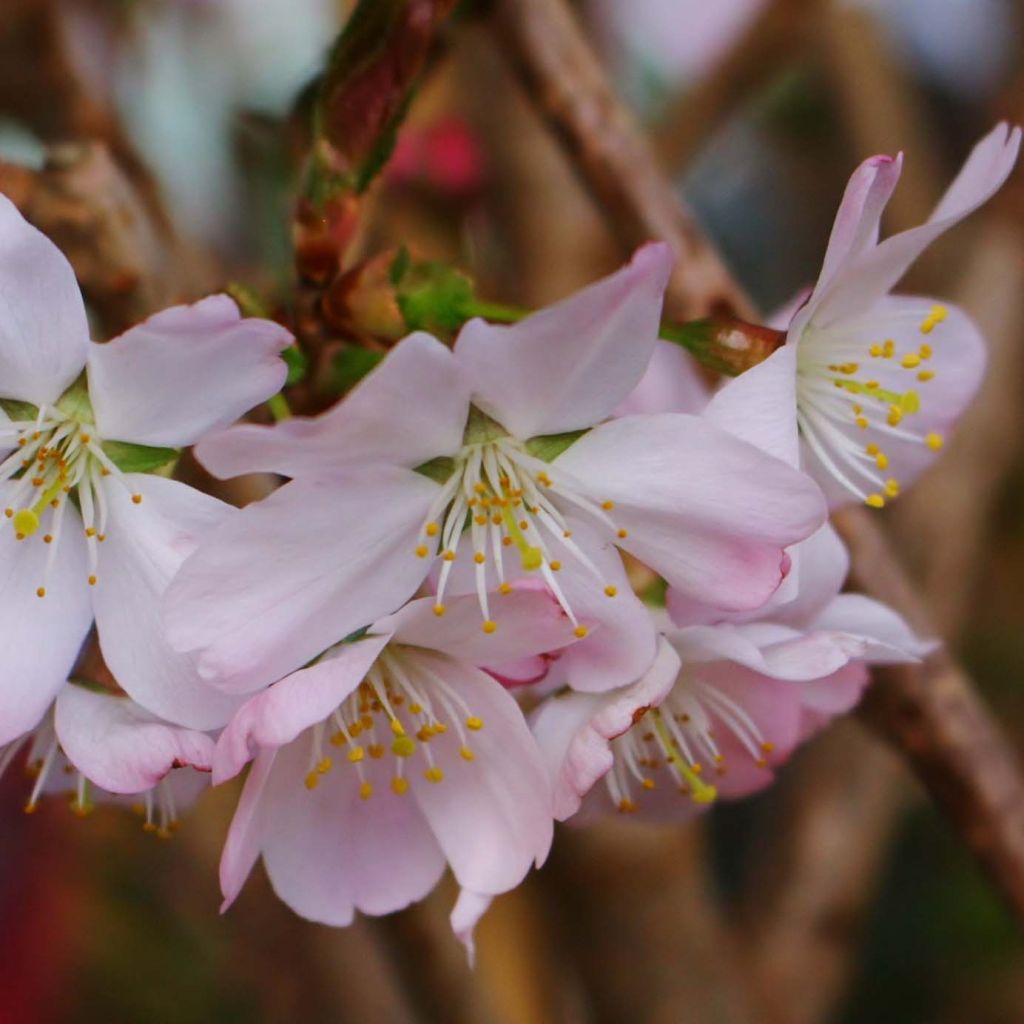

Prunus Pandora - Cherry
Prunus Pandora - Cherry
Prunus subhirtella var. rosea x yedoensis Pandora
Yoshino Cherry, Tokyo Cherry
conforme en pruning à ma commande; bon espoir de reprise
bernard, 22/11/2023
Special offer!
Receive a €20 voucher for any order over €90 (excluding delivery costs, credit notes, and plastic-free options)!
1- Add your favorite plants to your cart.
2- Once you have reached €90, confirm your order (you can even choose the delivery date!).
3- As soon as your order is shipped, you will receive an email containing your voucher code, valid for 3 months (90 days).
Your voucher is unique and can only be used once, for any order with a minimum value of €20, excluding delivery costs.
Can be combined with other current offers, non-divisible and non-refundable.
Home or relay delivery (depending on size and destination)
Schedule delivery date,
and select date in basket
This plant carries a 24 months recovery warranty
More information
We guarantee the quality of our plants for a full growing cycle, and will replace at our expense any plant that fails to recover under normal climatic and planting conditions.

Would this plant suit my garden?
Set up your Plantfit profile →
Description
The Prunus 'Pandora' is a variety of flowering cherry tree cultivated for its beautiful compact vase-shaped silhouette and its early and abundant flowering. In April, this deciduous tree is covered with thousands of small pure white flowers with delicate pink tips. Its oval foliage follows, offering warm bronze tones when it buds and a red-orange autumn spectacle before falling. Its small to medium size and upright habit in its youth then widen at maturity, making it a perfect tree for decorating small gardens, flowering a country hedge, or illuminating the entrance of the house. Hardy and easy to grow, it prefers full sun and a rather rich, well-drained, deep, and moist soil.
The Prunus 'Pandora', belonging to the large family of Rosaceae, is a cultivar resulting from the cross-breeding between Prunus (x) subhirtella 'Rosea' and Prunus yedoensis. It is commonly accepted nowadays that Prunus (x) subhirtella is a spontaneous hybrid native to East Asia. Prunus (x) yedoensis is a hybrid obtained in Japan in 1864, through the cross-breeding of Prunus speciosa and Prunus subhirtella. All these small trees belong to the large family of Rosaceae.
'Pandora' stands out for its abundant spring flowering of pure white with a touch of pink, giving a rosy glow to its blooming crown. It is a deciduous tree with moderate development and rapid growth, reaching an average height of 6m (20ft) with a 4m (13ft) spread. It develops one or several very short trunks and a crown that is first upright and columnar, then widening with age. Flowering occurs in April depending on the region. The flowers, gathered in small clusters, suspended by a short peduncle, are single. They emerge from rose-washed buds and then open into 3cm (1in) diameter corollas, white infused with pale pink on the edge of its delicate petals and crowned with golden yellow stamens. As they open, they fade until they become pure white. The flowers are followed by the formation of a few small fruits that turn red when ripe. The foliage, deciduous, consists of alternate, ovate leaves, 5-7cm (2-3in) long, coarsely toothed along the edges. The lamina, bronze in spring, turns dark green in summer and orange and red in autumn. The bark is grey-brown and peels off in thin flakes.
Its twisted branch lines makes the flowering cherry tree suitable for bonsai cultivation. 'Pandora', shining from the first beautiful days of spring, of modest stature and requiring very little maintenance, is suitable for small gardens, where it will be particularly highlighted when isolated or at the centre of a perennial bed whose flowering takes over from spring to summer. You can also plant it in a bed or as a free-standing hedge. Perfectly hardy, it can be grown in many regions but dislikes compact and clayey soils or excessively dry conditions. For example, in a hedge or bed, it can be associated with other spring-flowering shrubs, simultaneously or staggered, such as forsythias, Japanese quince, hedge honeysuckle (Lonicera xylosteum), ornamental apple trees, flowering peaches, Chinese almond trees, hawthorns, Japanese apricot (Prunus mume). A carpet of blue hyacinths, liverworts, or grape hyacinths would be very effective at its base.
Report an error about the product description
Prunus Pandora - Cherry in pictures


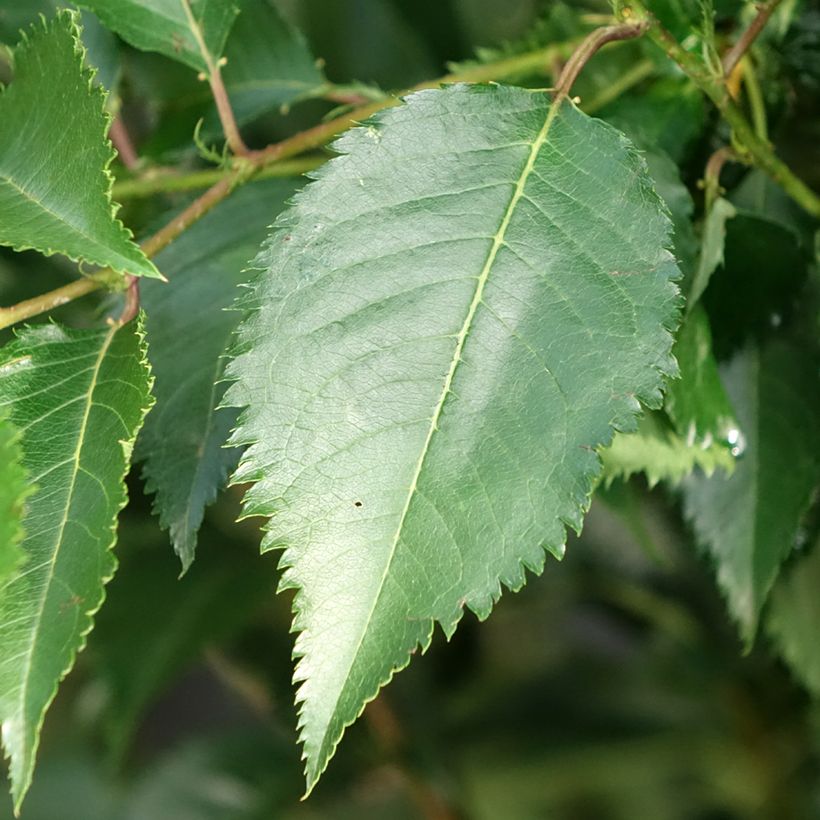



Plant habit
Flowering
Foliage
Botanical data
Prunus
subhirtella var. rosea x yedoensis
Pandora
Rosaceae
Yoshino Cherry, Tokyo Cherry
Cultivar or hybrid
Other Prunus
View all →Planting and care
The Prunus 'Pandora' thrives in full sun or partial shade in a normal to fertile, fairly deep, moist to slightly wet but well-drained, preferably neutral to slightly chalky soil. Water only during abnormally dry and hot weather. When planting, mix your soil with compost at a ratio of 50:50. Dig a large planting hole. Apply a flowering shrub fertiliser every spring. It is preferable to place the prunus in a sheltered spot from dry and cold winds, to enjoy its early flowering.
Planting period
Intended location
Care
-
, onOrder confirmed
Reply from on Promesse de fleurs
Haven't found what you were looking for?
Hardiness is the lowest winter temperature a plant can endure without suffering serious damage or even dying. However, hardiness is affected by location (a sheltered area, such as a patio), protection (winter cover) and soil type (hardiness is improved by well-drained soil).

Photo Sharing Terms & Conditions
In order to encourage gardeners to interact and share their experiences, Promesse de fleurs offers various media enabling content to be uploaded onto its Site - in particular via the ‘Photo sharing’ module.
The User agrees to refrain from:
- Posting any content that is illegal, prejudicial, insulting, racist, inciteful to hatred, revisionist, contrary to public decency, that infringes on privacy or on the privacy rights of third parties, in particular the publicity rights of persons and goods, intellectual property rights, or the right to privacy.
- Submitting content on behalf of a third party;
- Impersonate the identity of a third party and/or publish any personal information about a third party;
In general, the User undertakes to refrain from any unethical behaviour.
All Content (in particular text, comments, files, images, photos, videos, creative works, etc.), which may be subject to property or intellectual property rights, image or other private rights, shall remain the property of the User, subject to the limited rights granted by the terms of the licence granted by Promesse de fleurs as stated below. Users are at liberty to publish or not to publish such Content on the Site, notably via the ‘Photo Sharing’ facility, and accept that this Content shall be made public and freely accessible, notably on the Internet.
Users further acknowledge, undertake to have ,and guarantee that they hold all necessary rights and permissions to publish such material on the Site, in particular with regard to the legislation in force pertaining to any privacy, property, intellectual property, image, or contractual rights, or rights of any other nature. By publishing such Content on the Site, Users acknowledge accepting full liability as publishers of the Content within the meaning of the law, and grant Promesse de fleurs, free of charge, an inclusive, worldwide licence for the said Content for the entire duration of its publication, including all reproduction, representation, up/downloading, displaying, performing, transmission, and storage rights.
Users also grant permission for their name to be linked to the Content and accept that this link may not always be made available.
By engaging in posting material, Users consent to their Content becoming automatically accessible on the Internet, in particular on other sites and/or blogs and/or web pages of the Promesse de fleurs site, including in particular social pages and the Promesse de fleurs catalogue.
Users may secure the removal of entrusted content free of charge by issuing a simple request via our contact form.
The flowering period indicated on our website applies to countries and regions located in USDA zone 8 (France, the United Kingdom, Ireland, the Netherlands, etc.)
It will vary according to where you live:
- In zones 9 to 10 (Italy, Spain, Greece, etc.), flowering will occur about 2 to 4 weeks earlier.
- In zones 6 to 7 (Germany, Poland, Slovenia, and lower mountainous regions), flowering will be delayed by 2 to 3 weeks.
- In zone 5 (Central Europe, Scandinavia), blooming will be delayed by 3 to 5 weeks.
In temperate climates, pruning of spring-flowering shrubs (forsythia, spireas, etc.) should be done just after flowering.
Pruning of summer-flowering shrubs (Indian Lilac, Perovskia, etc.) can be done in winter or spring.
In cold regions as well as with frost-sensitive plants, avoid pruning too early when severe frosts may still occur.
The planting period indicated on our website applies to countries and regions located in USDA zone 8 (France, United Kingdom, Ireland, Netherlands).
It will vary according to where you live:
- In Mediterranean zones (Marseille, Madrid, Milan, etc.), autumn and winter are the best planting periods.
- In continental zones (Strasbourg, Munich, Vienna, etc.), delay planting by 2 to 3 weeks in spring and bring it forward by 2 to 4 weeks in autumn.
- In mountainous regions (the Alps, Pyrenees, Carpathians, etc.), it is best to plant in late spring (May-June) or late summer (August-September).
The harvesting period indicated on our website applies to countries and regions in USDA zone 8 (France, England, Ireland, the Netherlands).
In colder areas (Scandinavia, Poland, Austria...) fruit and vegetable harvests are likely to be delayed by 3-4 weeks.
In warmer areas (Italy, Spain, Greece, etc.), harvesting will probably take place earlier, depending on weather conditions.
The sowing periods indicated on our website apply to countries and regions within USDA Zone 8 (France, UK, Ireland, Netherlands).
In colder areas (Scandinavia, Poland, Austria...), delay any outdoor sowing by 3-4 weeks, or sow under glass.
In warmer climes (Italy, Spain, Greece, etc.), bring outdoor sowing forward by a few weeks.






























